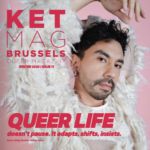A highly anticipated trial has just begun at the Brussels Court of First Instance, shining a harsh spotlight on the dangers LGBTQIA+ people still face-even in 2025. Three men stand accused of orchestrating a string of violent, homophobic ambushes using Grindr, the dating app widely used within the queer community. The case, involving at least eight victims, has sparked outrage and renewed calls for both justice and improved safety measures.
The Modus Operandi: Fake Profiles, Real Danger
The attacks, which mainly took place last summer, followed a chillingly consistent pattern. The suspects allegedly created fake Grindr profiles to lure victims into isolated locations-often parks-under the pretense of a date. Once the victim arrived, they were ambushed by a group, subjected to brutal beatings, homophobic slurs, and, in some cases, robbery. One victim described being dragged from their car, suffocated with a bag over their head, and threatened at gunpoint-all while enduring a barrage of slurs.
The violence was severe: at least one victim lost several teeth and now requires dental prosthetics. Eight victims have joined the case as civil parties, alongside Unia (Belgium’s anti-discrimination body) and Ex Aequo, an LGBTQIA+ advocacy group.
A Broader Pattern of Violence
Unfortunately, these attacks are not isolated incidents. Reports show a surge in homophobic violence in Brussels, with similar ambushes occurring in various neighborhoods and even tragic home invasions linked to dating apps. Data reveals that in 35% of anti-LGBTQIA+ cases, the violence escalates beyond discrimination to outright hate crimes involving physical assault. The Brussels police have urged the queer community to remain vigilant and have worked with Grindr to issue safety warnings to local users.
What’s Being Done?
The two adult suspects now face charges including extortion, armed robbery, and intentional assault with a discriminatory motive. The third suspect, a minor, will be tried separately in juvenile court. Meanwhile, Grindr has responded by enhancing safety features and sending push notifications to warn users in Brussels about the risks of entrapment.
Staying Safe: Tips for Queer Dating App Users
These events serve as a stark reminder: while dating apps can be a lifeline for connection, they can also be exploited by those with malicious intent. Here are some essential safety tips for anyone meeting up via Grindr or similar platforms:
- Always meet in a public, well-lit place for the first time.
- Tell a friend or family member where you’re going and who you’re meeting.
- Trust your instincts-if something feels off, don’t go.
- Do a quick background check on your date via social media.
- Use in-app safety features and pay attention to local warnings.
- A Call for Justice and Solidarity
This trial is more than just a legal battle-it’s a wake-up call for Brussels and beyond. LGBTQIA+ people deserve to live and love without fear. As the city watches the proceedings unfold, activists and organizations are demanding not only justice for the victims but also systemic change to ensure safety and equality for all.
Stay aware, stay safe, and remember: solidarity is our strongest defense against hate.

You may also like
-

The New KET Is Out: Queer Brussels Keeps Moving
KET Magazine Issue 11 is out now and available in LGBTQIA+ safe spaces across Brussels,
-

Brussels Art Guide 2026: Mapping a Vibrant Contemporary Scene
Brussels is once again putting its contemporary art scene in the spotlight with the new
-

Another study shows that puberty blockers save young transgender lives
Another study proving that gender‑affirming care has a positive impact on the mental health of
-

Psychedelics May Help LGBTQ+ People Recognize Their True Identities
Psychedelic drugs may not change who you are, but emerging research suggests they can make
-

What is Sex-Positive Belgium?
Sex-Positive Belgium is a growing, real-life community of open-minded people who embrace a sex-positive philosophy. It welcomes

